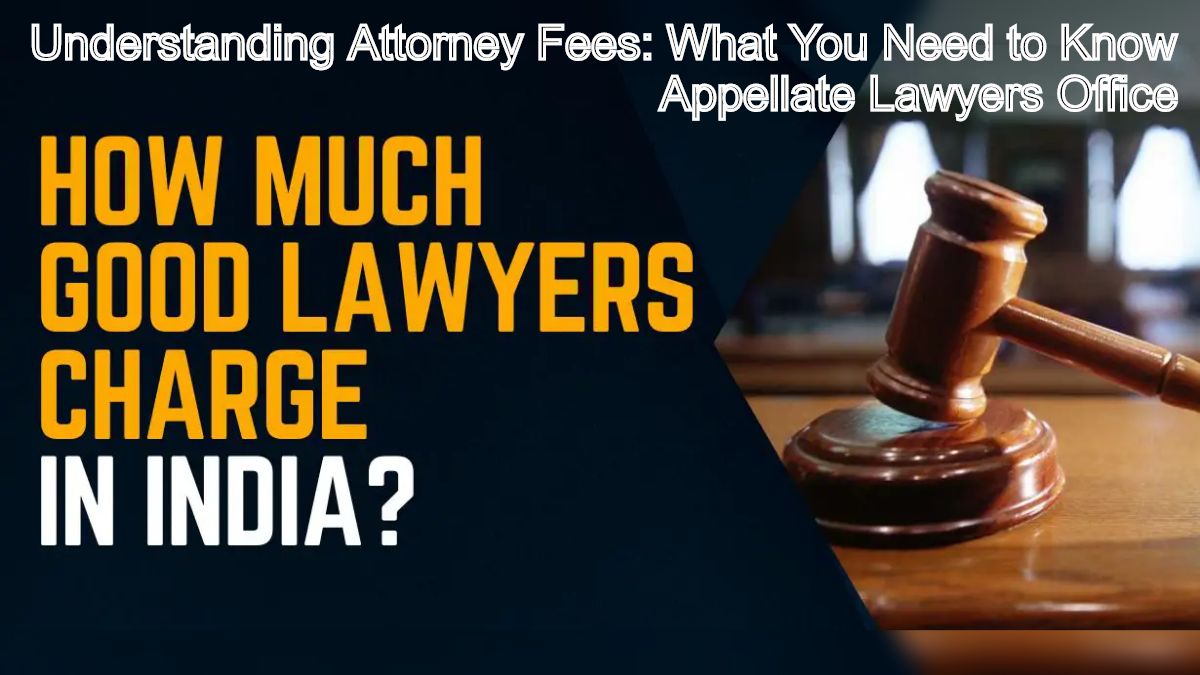The legal system can be complex and navigating it often requires the expertise of an attorney. However, legal fees can be a significant concern for many people. This article aims to demystify attorney fees, specifically focusing on the practices of an Appellate Lawyers Office. By understanding the different fee structures, you can make informed decisions when seeking legal representation.
Understanding Attorney Fees: What You Need to Know (Appellate Lawyers Office)
Types of Attorney Fees
Appellate lawyers typically charge fees in three main ways: hourly rates, flat fees, and contingency fees. Let’s break down each of these structures:
- Hourly Rates: This is the most common fee structure. The attorney tracks the time spent working on your case and bills you at an agreed-upon hourly rate. This rate can vary depending on the lawyer’s experience, reputation, and the complexity of your case. For instance, a seasoned appellate lawyer with a proven track record might charge a higher hourly rate than a less experienced one.
- Flat Fees: In some cases, an appellate lawyer may agree to a flat fee for a specific service. This is often the case for well-defined tasks, such as drafting a legal brief or preparing for oral arguments. A flat fee provides certainty in terms of cost, but it’s important to ensure the agreed-upon scope of work covers everything you need.
- Contingency Fees: Contingency fees are less common in appellate cases, but they might be an option in specific situations. With a contingency fee, the lawyer’s fee is contingent upon winning the case. The lawyer typically takes a percentage of the awarded damages or settlement. While this can be appealing if you have limited funds upfront, it’s crucial to understand that there’s no guarantee of success, and you won’t have any recourse for legal fees if the case is lost.
Additional Costs to Consider
Attorney fees are not the only financial consideration. In addition to the lawyer’s fees, you may also be responsible for court filing fees, copying costs, travel expenses, and other litigation-related expenses. An appellate lawyer should be upfront about these additional costs and provide you with an estimated breakdown before you move forward.
Factors Affecting Attorney Fees
Several factors can influence the overall cost of your legal representation. Here are some key considerations:
- The Complexity of Your Case: Complex cases with intricate legal issues or extensive factual disputes will likely require more time and resources, leading to higher fees.
- The Experience of the Lawyer: More experienced appellate lawyers often command higher hourly rates due to their expertise and proven track record.
- The Location: Attorney fees can vary depending on the geographical location of the appellate court. Fees tend to be higher in major metropolitan areas.
How to Manage Attorney Fees
Here are some tips for managing attorney fees:
- Get a Fee Agreement in Writing: Before starting work on your case, always obtain a written fee agreement from your lawyer. This document should clearly outline the fee structure, estimated costs, and billing procedures.
- Communicate Effectively: Maintain open communication with your lawyer about the scope of work and your budget. Discuss any concerns you have about fees promptly.
- Ask Questions: Don’t hesitate to ask your lawyer questions about fees and billing practices. The more informed you are, the better equipped you’ll be to make sound decisions.
FAQs on Attorney Fees
Q: Can I negotiate attorney fees?
A: Yes, in most cases, attorney fees are negotiable. Don’t be afraid to discuss your budget constraints with your lawyer and explore potential fee arrangements.
Q: What if I can’t afford an attorney?
A: There are legal aid organizations that provide assistance to low-income individuals. You might also qualify for a pro bono lawyer who volunteers their services.
Q: How can I compare fees from different lawyers?
A: Ask each lawyer for a written fee agreement that details their fee structure and estimated costs. This will allow you to compare apples to apples.
Q: Should I choose the lawyer with the lowest fee?
A: Price shouldn’t be the sole deciding factor. Experience, expertise, and a good working relationship with the lawyer are equally important considerations.
Conclusion
Understanding attorney fees empowers you to make informed decisions when seeking legal representation from an Appellate Lawyers Office. By familiarizing yourself with different fee structures, discussing costs openly with your lawyer, and considering various factors, you can manage your legal expenses effectively and secure the legal counsel you deserve.
Read More
- Flat owners Association: How to Find the Best Law firms?
- Advocate: How to Choose Lawyers and Attorneys?
- Best Law Firm in Chennai
- Bar Council of India: https://www.barcouncilofindia.org/
- Resolving Disputes: Your Guide to Arbitration
- Senior Lawyers for Government Employees: Get the Expert Legal Advice & Best Representation

